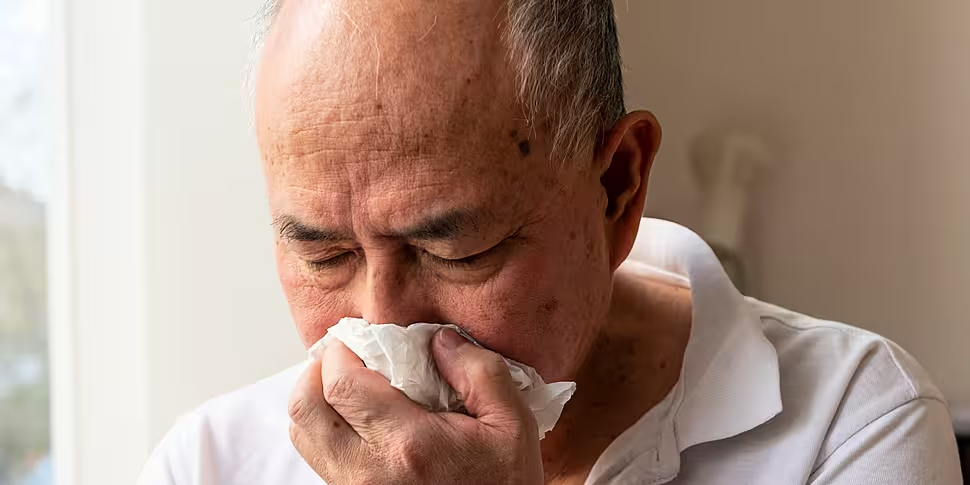People over the age of 65 are being encouraged to protect themselves from the RSV virus this winter by getting vaccinated.
New research reveals that just under 50% of over-65s have little to no knowledge of RSV and its potential risks.
Respiratory Syncytial Virus (RSV) is a common virus that causes coughs and colds but can cause complications in older people, young children and at-risk groups.
Respiratory expert Professor Patrick Mitchell told Breakfast Briefing carriers usually have symptoms.
"It's a very common cause of, for most people, symptomatic cold - very few people actually carry this virus without any symptoms," he said.
"It gets a lot of press - rightly - for the paediatric population under 12 months.
"But a lot of people don't realise that it causes significant respiratory pathology in our patients, especially those who have comorbidities such as COPD, heart failure, asthma, diabetes, renal disease and liver disease.
"There are things that people can do to prevent it - hand washing, avoiding people who may have an upper or lower respiratory tract infection such as common cold and indeed vaccinations.
"Thankfully now we have two vaccines that are available for our population to try and protect themselves".
'Inflammation and infection'
Prof Mitchell said RSV can affect people's lung tissue.
"What I see actually are what we call a pneumonitis - inflammation and infection of lung tissue - which reduces the ability of the lungs to do their job," he said.
"What we see is people who come into hospital with increasing breathlessness... and in those circumstances when we take a viral swab, about 10% of the time, when it's a virus, that turns out to be RSV.
"We don't have any actual treatments for that, it's supportive care."
'Similar to COVID'
He said patients can end up on oxygen and occasionally in the Intensive Care Unit.
Prof Mitchell said an outbreak means a lockdown similar to COVID-19.
"It does have to be locked down, it does have similar manifestations in terms of the rules and regulations of what we did during COVID times.
"It's very difficult for family members who want to visit a patient; it's very difficult for the patients themselves but we have to take this very seriously.
"We do have to, essentially, lock down wards or certainly significantly reduce the traffic through these wards."
Prof Mitchell said data suggests the RSV vaccine offers people protection for up to two seasons and that "we are potentially looking at a recurrent vaccination program like influenza".
More information can be found here









